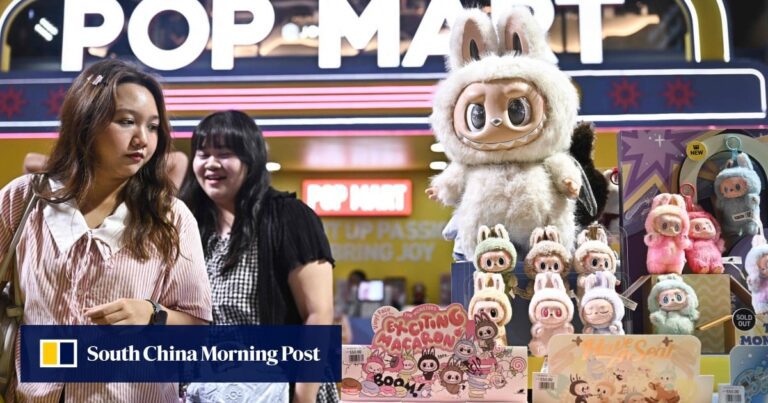Pop Mart’s revenue doubled last year to US$1.8 billion, driven by its mystery-box model. The thrill is engineered: pay first, discover later and keep buying until the set is complete. This fuels compulsive consumption and excessive packaging.
More harmful is the figurine itself. PVC and ABS are durable but environmentally stubborn. PVC degrades into microplastic and leaches toxic compounds. A European Chemicals Agency investigation concluded that some substances added to PVC plastic may pose risks to human health and the environment, warranting regulatory action. Manufacturing 1kg of ABS emits nearly 3kg of carbon dioxide. Multiply that by millions and the climate impact becomes hard to ignore.
While fashion has begun to embrace circular models, the premium toy industry remains relatively unchecked. The “collectible” label often exempts toys from environmental scrutiny. But on resale platforms, bulk lots of duplicates, unwanted figurines and steep markdowns point to overconsumption.
Some argue that these toys are too small to matter. But around half of global plastic waste comes from single-use packaging. In blind-box culture, packaging isn’t just protection – it’s part of the experience, compounding the waste.


